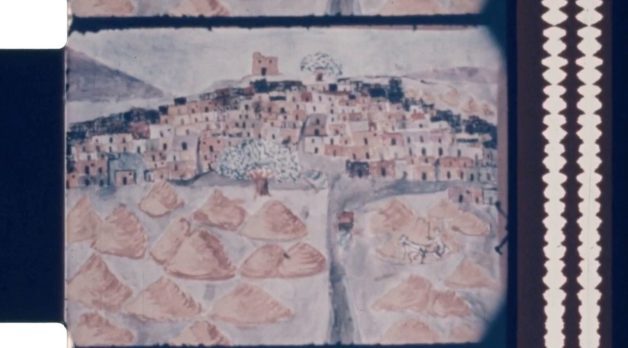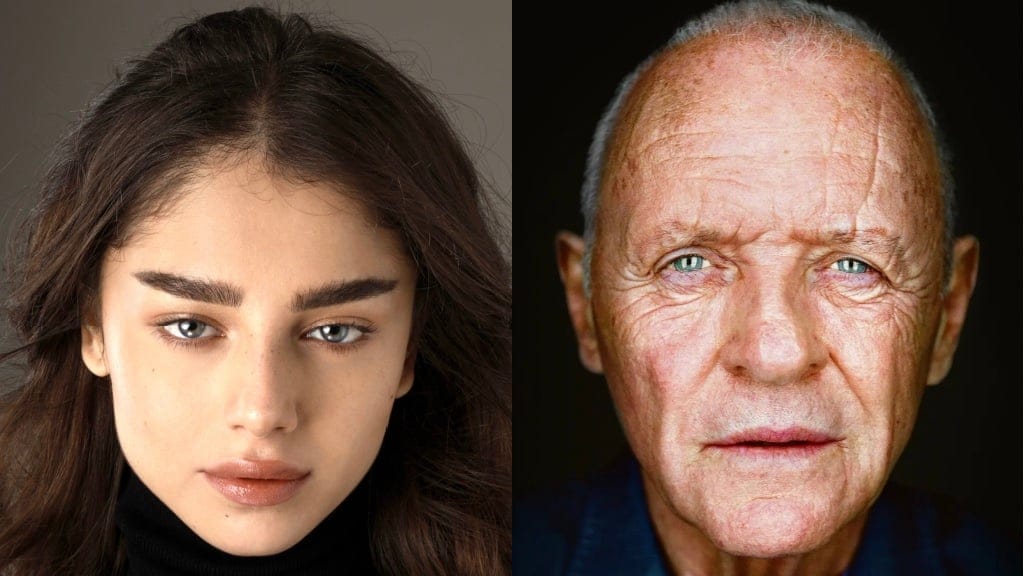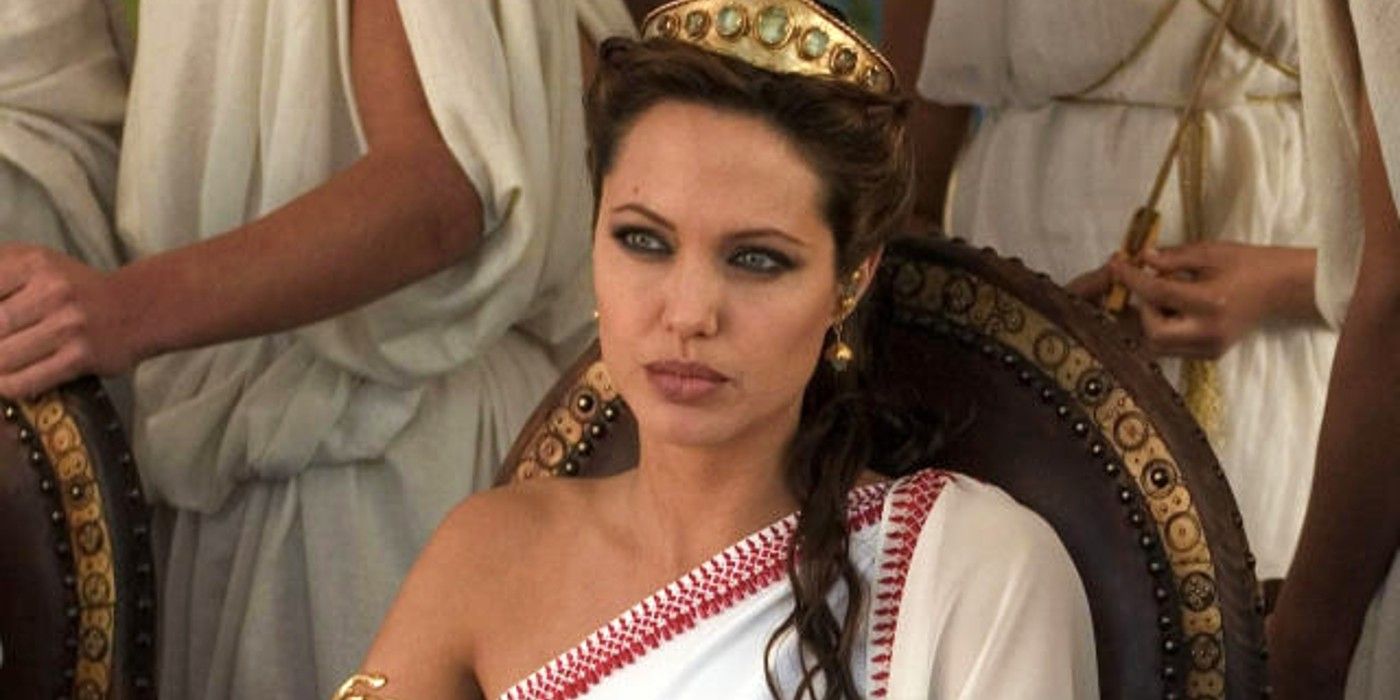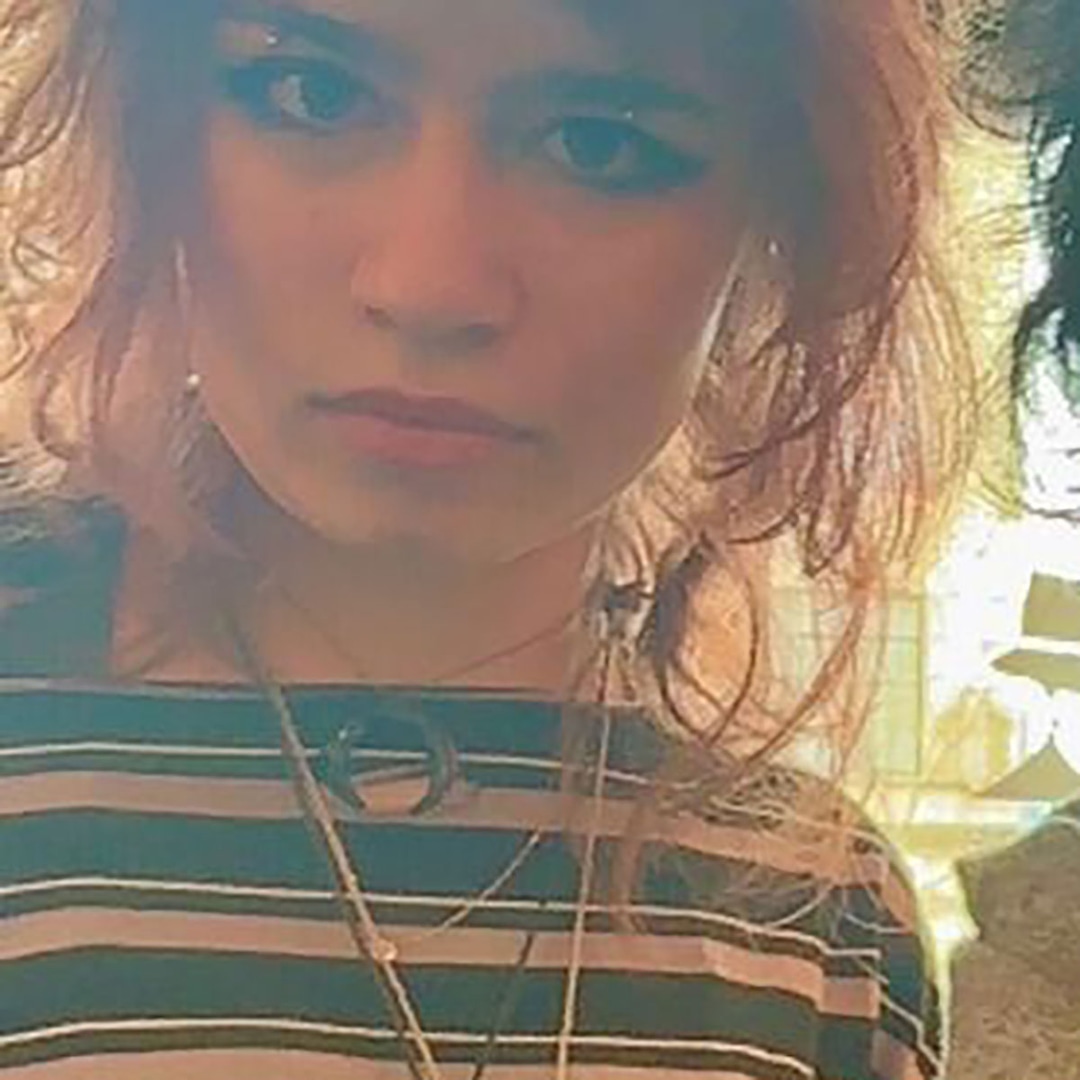
“A Militant Archiving Process”: Mohanad Yaqubi on R21 AKA Restoring Solidarity
Feb 28, 2023
R21 aka Restoring Solidarity
The Tokyo Reels, a project by Subversive Film (Mohanad Yaqubi and Reem Shilleh), was first exhibited as an installation and mini film festival at documenta fifteen. This collection of 20 films depicting the Palestinian struggle was safeguarded for decades by Japanese activists before its preservation by Subversive Film. Following its restoration, the collection served as the basis for R21 AKA Restoring Solidarity (2022), set to have its North American premiere at this year’s True/False Film Festival. In November 2022, as R21 was having its world premiere at the International Documentary Festival of Amsterdam, we spoke with Yaqubi on transnational film networks and the role of the filmmaker-as-archivist.
Filmmaker: R21 AKA Restoring Solidarity began as part of the process of cataloging a collection of 20 archival films, then making a trailer for each one, before ultimately deciding that they should be combined into a full film. How did that process develop?
Yaqubi: The theme of my research is imperfect archives, which is inspired by Julio Garcia Espinosa’s text “For An Imperfect Cinema.” For him, films were all about experimenting, not looking for perfection. Rather than follow a certain canon, art school or film school, he argues for using an aesthetic that reflects the people’s will. I believe that “imperfect cinema” has to be archived in the same way. The Tokyo Reels are one example of an “imperfect archive.” We’re dealing with an archive of a revolution that never succeeded. [Revolutions] that did succeed already have an archive—like the Algerian revolution, which started documenting itself after 1962.
What does archiving mean, at the end of the day? It’s telling history and forming a narrative. You rearrange history according to your ideology. Cuba is an example; Guinea, too. But with the Palestinians, these films are part of an imperfect archive that was also transnational. The idea was to take these 20 films and make an expanded inventory. An imperfect archive is not framed: you can add to it. What does it mean to add to a collection of 20 films? Should we make a transcript, take stills, make subtitles? I was especially aware that for people in struggle, who don’t have their own archive, any extra material will become important. Being able to produce an archive is a point of vitality. So, we did the transcript first, then subtitling and scanning. Then we decided to make a trailer for each film, which we put together in one timeline. We added the titles and thought, “That’s going to be an art piece somehow.” So Rami [El Nihawi], the editor, said, “How should we organize the timeline?” I said, “Let’s do it chronologically by year of production.” After adding the sixth film, we watched it through again and felt that there was someone else speaking. The collection itself has a voice, which comes from the people behind it. Those people clearly wanted to preserve these films, but didn’t present them as far as we know, and there’s nothing written about them. We wanted to track the voice of this solidarity movement and polish it. So, the film created itself—we just helped.
Watching chronologically, we noticed the changes in the film material, like the move from black and white to color, or the atmosphere around the political movements. Films that are made in 1967 talk about different things than those made in 1973 or 1982. No one before us had looked at the collection as a collection. Only sovereign people can do this kind of reproduction of archives, which intrigued the curators of documenta, but ended up annoying others. It was like, “OK, we’re in Germany: they have a certain way of forming a historical narrative.” We came in with a different narrative through this archive, one that challenged the normal representation of the “conflict” in the Middle East.
Filmmaker: How did these films come into your possession?
Yaqubi: I was screening my first feature film, Off Frame aka Revolution Until Victory, in Tokyo, and after the screening, someone came up to me and gave me a list of films in Japanese. We ended up getting the films, and they turned out to be very rare, and not just about Palestine. The person who had them is Aoe Tanami, a professor of comparative literature whose specialty is the Middle East. Many years ago, they stored this archive of films in her bedroom. That was around the end of the ’80s; she hadn’t been back until recently. After seeing my film, she felt that we knew how to deal with 16mm film. She was also interested in returning the films to Palestinians. We looked at the list, and it contained many films we didn’t know, even though we’ve been researching this topic for ten years. That really intrigued us. We built a process together with the collector, thinking about what it means to look at the films from the perspective of Palestine versus Japan, how to read all the political gestures inherent in them and how to explain them but also how to speculate.
There is a power in speculation. How I see it is that the films were a key to address a larger research topic. Other people are now coming out and saying that they have more films to share. At Subversive Film, we always work with multiple outputs. The film is one output. The catalogs and the website we made are others that, for me, are more important than the film itself. The film is a container that travels between eras. What I really want to survive is the credits at the end of the film that reference each individual film [forming a bibliography]. The film has a narrative, but that’s not my intention as a filmmaker. I’m trying to expand ways of using archives and producing narratives. I think that in many archive films, people try hard to work creatively with the material and forget that if you just let it speak, it will. You need to provide the right conditions for it to flourish.
Filmmaker: What is the goal in the actual preservation and restoration of the materials that you’ve done?
Yaqubi: Extending their lives and disseminating them. Not archiving them, because we can’t archive a revolution that’s still in process. In Off Frame, I was pleased to see a lot of the archival films used throughout social media like Instagram as a reflection of the ongoing struggle. Making the film made these images available again. But I also want to think about what that means. There are a lot of people who just take certain [archival] clips, add their own soundtrack and narration and use it as a continuation of a certain narrative. I mean, that’s what the colonizer does. Colonizing is about capturing not only the land, but the memory, and then leaving people without land and without memory, keeping them in a state of being only here and now. Being able to find a way to stop time to look past that becomes an act of struggle. That’s what I was doing in R21 and in Off Frame.
Filmmaker: At documenta, you showed these films in two formats: in one venue, you presented them as part of a film festival. In another venue, you presented them in a central installation with interludes of your reflections. Can you describe why you took these different approaches?
Yaqubi: We’re testing different models of how to present this material. The festival was screening the films as in a cinema: framed correctly, without seeing the soundtrack or sprockets. Our curatorial approach was that we are programed the 20 films and created a one-time film festival called Tokyo Reels Film Festival, with all that it comes with: catalogues, posters, opening nights and drinks after screenings. That was going in Gloria, the cinema. In the other space, Hubner Areal, we put the 20 films after each other, but between each film there’s a few minutes of us reflecting and making connections. That was playing the whole day. The runtime of the 20 films with us speaking was about ten hours. So, the exhibition opened at 10am and finished at 8pm. This ran for 100 days. This was another statement: how can you play militant material, propaganda, for 100 days in the middle of Germany? It’s amazing, because these films have never been screened so much. In Japan, each one was screened maybe once or twice in the last 40 years.
Filmmaker: You undertook the complete digitization and restoration of the films, including color grading and sound. What was your restoration approach on a technical level?
Yaqubi: The scratches are an archive of time. I am from a school of thought that believes in not digitally touching those marks. Touching and cleaning is like Botox. Making things look as if they’re from a different time than they are. In a sense, sound is more important in this kind of restoration, so there was more work on sound: cleaning scratches, adjusting the levels, removing noise. We kept the image as it was because we felt that it was a container of time. It tells us how many times it was screened. It tells us more about the materiality of those events.
In militant cinema, the filmmakers were never looking for perfect images. The perfection of images is a Western bourgeois attitude toward producing images. Instead, [militant filmmakers] were asking, “What is the content? What is the meaning? What is the effect? What is the reflection?” And that’s what we were thinking about in making our restoration. We wanted to capture that. You could call it a militant archiving practice.
Sophia Haid, Finn Jubak and Andrei Vilcov are current MA candidates in the Preservation and Presentation of the Moving Image program at the University of Amsterdam.
Publisher: Source link
Hilary Duff Really Wants People To Stop Asking When The Baby Is Coming, Because Her Guess Is As Good As Yours
In other words, relax people.View Entire Post › Disclaimer: This story is auto-aggregated by a computer program and has not been created or edited by filmibee.Publisher: Source link
Apr 26, 2024
Former Slack CEO’s 16-Year-Old Child Mint Butterfield Reported Missing
Authorities are trying to locate Slack cofounder Stewart Butterfield's 16-year-old child. Mint Butterfield was last seen late April 21 in Bolinas, Calif., a Marin County Sheriff's Office deputy said in a statement posted on the department's Nextdoor account April 23. The police added…
Apr 26, 2024
Jill Scott’s Chris Brown Tweet Faces Backlash
*deep sigh* In times like this, I wish Jill would've remembered and practiced her own lyrics, "Maybe we could just be silent." If you or someone you know is in immediate danger as a result of domestic violence, call 911.…
Apr 25, 2024
Skai Jackson Reveals Where She Stands With Her Jessie Costars
After starring as brainy Ren Stevens for three years on Even Stevens, bringing the titular Kim Possible to life, and starring opposite Hilary Duff in the 2002 DCOM Cadet Kelly, Christy Carlson Romano took to Broadway for a 31-week run…
Apr 25, 2024











